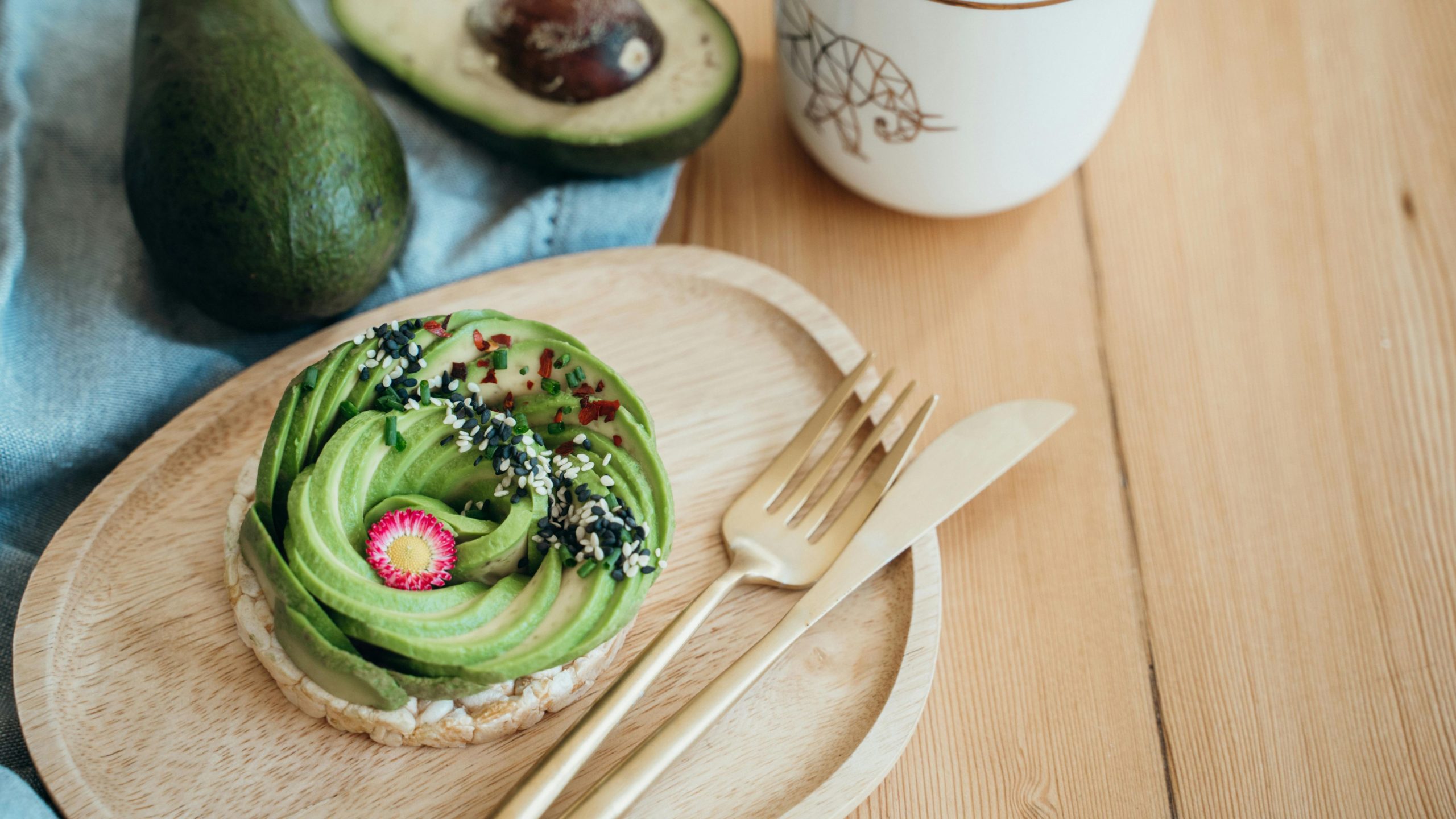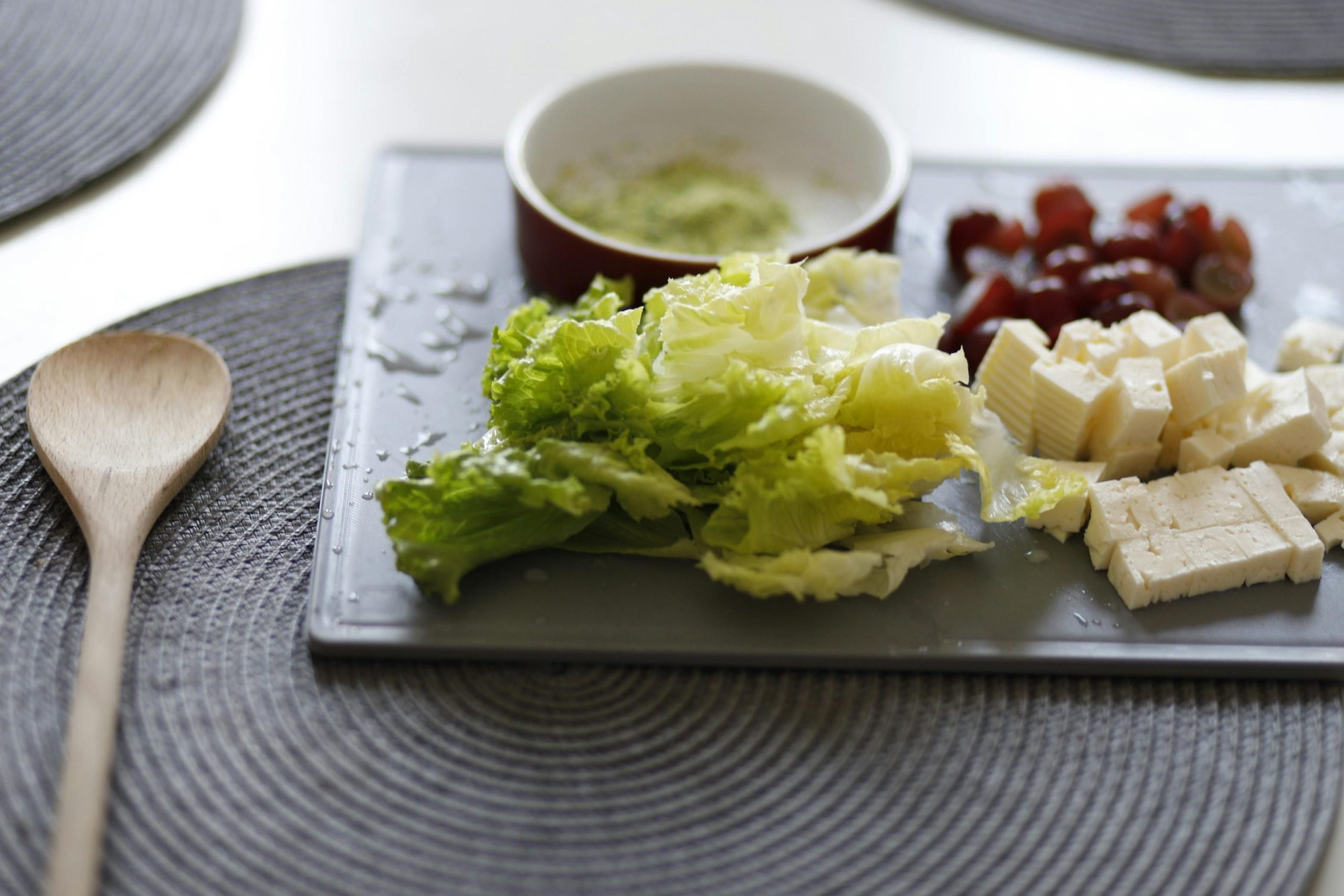Embarking on a vegan diet doesn’t have to be daunting or expensive.
Many fear that vegan eating is complicated and might not meet their nutritional needs.
A well-planned vegan diet, created by dietitians, ensures balanced nutrition with a variety of meals that are both satisfying and healthful.
This guide will dive into how to master meal prep, understand daily meal breakdowns, ensure nutritional completeness, and even how to shop effectively for a vegan diet on any budget.
Mastering Meal Prep on a Vegan Diet

Mastering meal prep on a vegan diet isn’t just about saving time and money—it’s about ensuring that every meal is nutritious and aligned with your dietary goals. By dedicating a few hours each week to prepare your meals, you can maintain a healthy, plant-based diet without the daily hassle of deciding what to cook. This approach not only streamlines your weekly eating habits but also helps you avoid the temptation of less healthy, impromptu food choices.
The key to successful vegan meal prep lies in variety and balance. Incorporating a range of vegetables, grains, and protein sources ensures that your meals are both satisfying and nutritionally complete. Planning ahead allows you to craft a menu that includes all the essential nutrients, making it easier to stick to a vegan diet. Plus, preparing meals in batches means you can mix and match different dishes throughout the week, keeping your diet interesting and diverse.
Another significant benefit of meal prepping is the reduction of food waste. By buying only what you need and using ingredients in multiple recipes, you can minimize excess and make the most of your grocery haul. This not only supports a sustainable lifestyle but also helps keep your food budget in check. With a little creativity and some basic cooking skills, you can master the art of meal prep and enjoy a variety of delicious, plant-based meals every day of the week.
Daily Vegan Eating Plan Breakdown

A typical day on a vegan meal plan might start with a nutritious breakfast of oatmeal topped with sliced bananas, chia seeds, and a dollop of almond butter, providing a good mix of carbohydrates, protein, and healthy fats. For lunch, a quinoa salad with chickpeas, cucumbers, tomatoes, and a lemon-tahini dressing offers a satisfying midday meal rich in protein and fiber.
Dinner could be a hearty vegetable stir-fry with tofu, bell peppers, and broccoli, served over brown rice. This meal not only covers your protein needs but also contributes to your daily intake of vitamins and minerals. Snacks throughout the day could include hummus with carrot sticks, a piece of fresh fruit, or a handful of nuts, ensuring you’re fueled and satisfied between meals.
Nutritional Essentials in Your Vegan Meal Plan
Ensuring adequate nutrition is crucial on a vegan diet, particularly when it comes to protein, iron, calcium, and vitamins B12 and D. Protein can be found in foods like lentils, chickpeas, tofu, and quinoa. These should be included in various meals throughout the day to meet your body’s needs. Iron, which is vital for blood health, can be sourced from leafy greens and fortified cereals, and its absorption is enhanced when consumed with vitamin C-rich foods like citrus fruits or bell peppers.
Calcium needs can be met by including fortified plant-based milks and orange juice, as well as tofu and leafy greens like kale and bok choy in your diet. Since Vitamin B12 is not naturally present in plant foods, it’s important to use fortified products or supplements to achieve the necessary intake. Regular exposure to sunlight or consuming fortified foods can help maintain vitamin D levels, crucial for bone health and immune function.
Vegan Food Plan Shopping List
When creating a shopping list for your vegan meal plan, start with staples like legumes (black beans, lentils), whole grains (quinoa, whole wheat pasta), and a variety of vegetables (spinach, carrots, bell peppers). Don’t forget to include protein sources such as tofu, tempeh, and a variety of nuts and seeds. Plant-based milks like almond or soy milk should also be on your list, along with healthy fats like olive oil and avocados.
For flavor and nutrition, stock up on herbs and spices, nutritional yeast for a cheesy flavor, and condiments like soy sauce and mustard. Fresh fruits are essential for snacking and adding natural sweetness to meals. By ensuring your pantry and fridge are filled with these items, you’ll be well-equipped to prepare nutritious and satisfying vegan meals that align with your health goals and taste preferences.
Health Benefits of a Vegan Meal Plan
Adopting a vegan meal plan offers a multitude of health benefits, particularly in the realm of cardiovascular health. Studies have consistently shown that a diet free from animal products can lead to lower levels of cholesterol and blood pressure, two significant risk factors for heart disease. By focusing on whole, plant-based foods, individuals can also see improvements in blood sugar control, reducing the risk of type 2 diabetes, which is often associated with heart complications. This dietary approach not only helps in managing existing health issues but also in preventing future ailments.
Beyond heart health, a vegan diet is linked with a lower overall risk for several chronic diseases. Research highlights a reduction in the incidence of certain types of cancer, such as colon and breast cancer, among those who follow a plant-based diet. The absence of saturated fats from animal products and the high intake of fiber and antioxidants from plants can contribute to this protective effect. Additionally, the anti-inflammatory properties of many plant foods can further safeguard against chronic health issues, providing a comprehensive approach to wellness through diet.
Moreover, adopting a vegan diet can also lead to improved weight management and better digestive health. The high fiber content in a plant-based diet not only helps in regular bowel movements but also contributes to a longer feeling of fullness after meals, which can aid in weight control. Many people also report higher energy levels and better skin health after switching to a vegan diet, thanks to the high levels of nutrients, vitamins, and minerals that are packed in fruits, vegetables, nuts, and seeds.
Considerations and Precautions of a Vegan Diet
While a vegan diet offers numerous health benefits, it also requires careful planning to avoid nutritional deficiencies. Key nutrients that are often lacking in a vegan diet include Vitamin B12, iron, calcium, and omega-3 fatty acids. Since these nutrients are commonly found in animal products, vegans must seek alternative sources or consider supplements. For instance, Vitamin B12, crucial for nerve function and blood formation, is not available in plant foods and must be obtained through fortified products or supplements. Similarly, plant-based sources of iron and calcium are less easily absorbed by the body, making it important to consume them in adequate amounts and combine them with other nutrients that enhance absorption, such as vitamin C.
To mitigate these risks, vegans are encouraged to regularly monitor their nutrient levels through medical check-ups and tailor their diet accordingly. Including a variety of whole foods, such as leafy greens, nuts, seeds, legumes, and whole grains can help cover nutritional bases. Additionally, fortified foods like plant-based milks and cereals can provide necessary vitamins and minerals. Consulting with a healthcare provider or a dietitian can also offer personalized guidance to ensure nutritional adequacy while enjoying the health benefits of a vegan lifestyle. This proactive approach is essential to maintain health and vitality without animal products.
Enhance Your Vegan Journey with Indulge’s Culinary Tours
Exploring a vegan lifestyle goes beyond just cooking at home; it’s about discovering the vibrant world of vegan cuisine in diverse settings. This is where INDULGE steps in with its curated culinary tours specifically designed for vegans. These tours not only showcase the rich tapestry of vegan options in Zurich but also provide a delightful educational experience. You’ll have the opportunity to:
- Taste local and international vegan dishes prepared by expert chefs.
- Learn about the ingredients and techniques used in vegan cooking which can inspire your own meals.
- Discover vegan-friendly restaurants and cafes in Zurich that you might not find on your own.
This unique blend of tasting and learning makes INDULGE‘s tours a must-try for anyone on a vegan journey, whether you’re a seasoned plant-based eater or just starting out.
Besides the delicious food, these tours offer a chance to meet like-minded individuals who share a passion for veganism and sustainable living. It’s an opportunity to connect with the local vegan community, exchange ideas, and gain new insights into making veganism a delightful part of your lifestyle. Highlights of INDULGE’s offerings include:
- Exclusive Wine & Dine experiences that feature vegan multi-course meals in some of Zurich’s most iconic venues.
- Signature walking tours in Old Town Zurich, where you can learn about the city’s history while enjoying vegan Swiss specialties.
- Personalized private tours that can be tailored to your specific dietary preferences and interests.
Each tour is designed to enrich your understanding and appreciation of vegan cuisine, making your dietary journey not only more enjoyable but also more integrated into the wider world of culinary arts. Consider an INDULGE tour as a valuable addition to your vegan lifestyle, enhancing your knowledge and pleasure in plant-based eating.
Frequently Asked Questions
What is a typical vegan meal?
A typical vegan meal might include a variety of plant-based dishes such as a hearty vegetable stir-fry with tofu, bell peppers, and broccoli served over brown rice. This meal covers protein needs and also provides a good intake of vitamins and minerals.
What should a vegan eat in a day?
A vegan should aim to eat a balanced mix of carbohydrates, proteins, and healthy fats throughout the day. For example, a day might start with oatmeal topped with bananas and almond butter, followed by a quinoa salad with chickpeas for lunch, and a vegetable stir-fry with tofu for dinner. Snacks could include hummus with carrot sticks or a handful of nuts.
What to eat in a vegan diet?
In a vegan diet, it’s important to include a variety of foods to ensure nutritional completeness. This includes legumes like lentils and chickpeas, whole grains like quinoa, a variety of vegetables, protein sources such as tofu and tempeh, plant-based milks, and healthy fats like olive oil. Additionally, snacks can include fresh fruits, nuts, and seeds.
What are the 5 most important rules of a vegan diet?
The five most important rules of a vegan diet include: 1) Ensure a variety of foods to cover all nutritional needs. 2) Focus on whole, plant-based foods to maximize health benefits. 3) Include protein sources in every meal. 4) Use fortified foods or supplements for nutrients not naturally present in plant foods, such as Vitamin B12. 5) Plan meals to include essential nutrients like iron and calcium, and combine them with other foods that enhance nutrient absorption.







